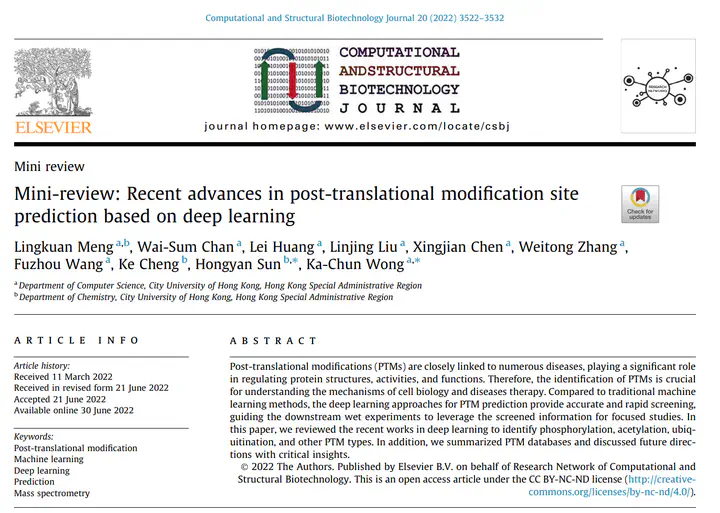Mini-review: Recent advances in post-translational modification site prediction based on deep learning
 © 2022 Elsevier Ltd. All rights reserved.
© 2022 Elsevier Ltd. All rights reserved.Abstract
Post-translational modifications (PTMs) are closely linked to numerous diseases, playing a significant role in regulating protein structures, activities, and functions. Therefore, the identification of PTMs is crucial for understanding the mechanisms of cell biology and diseases therapy. Compared to traditional machine learning methods, the deep learning approaches for PTM prediction provide accurate and rapid screening, guiding the downstream wet experiments to leverage the screened information for focused studies. In this paper, we reviewed the recent works in deep learning to identify phosphorylation, acetylation, ubiquitination, and other PTM types. In addition, we summarized PTM databases and discussed future directions with critical insights.